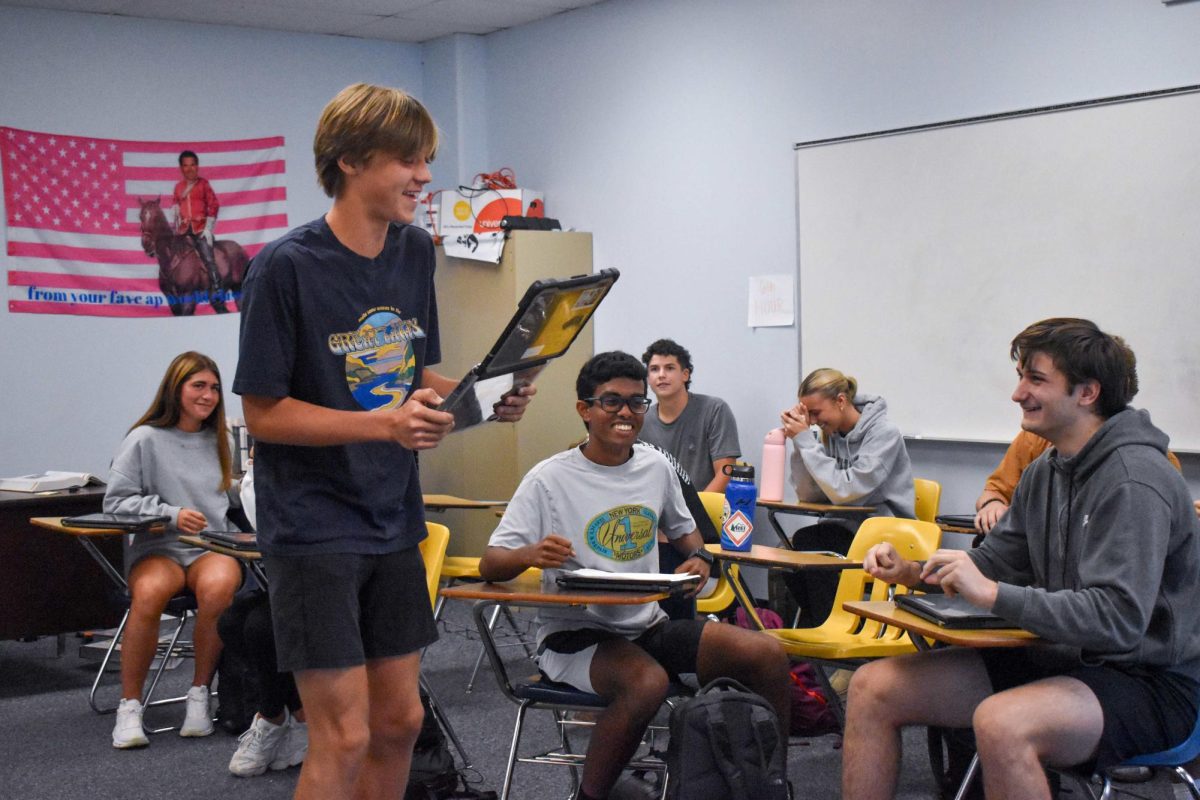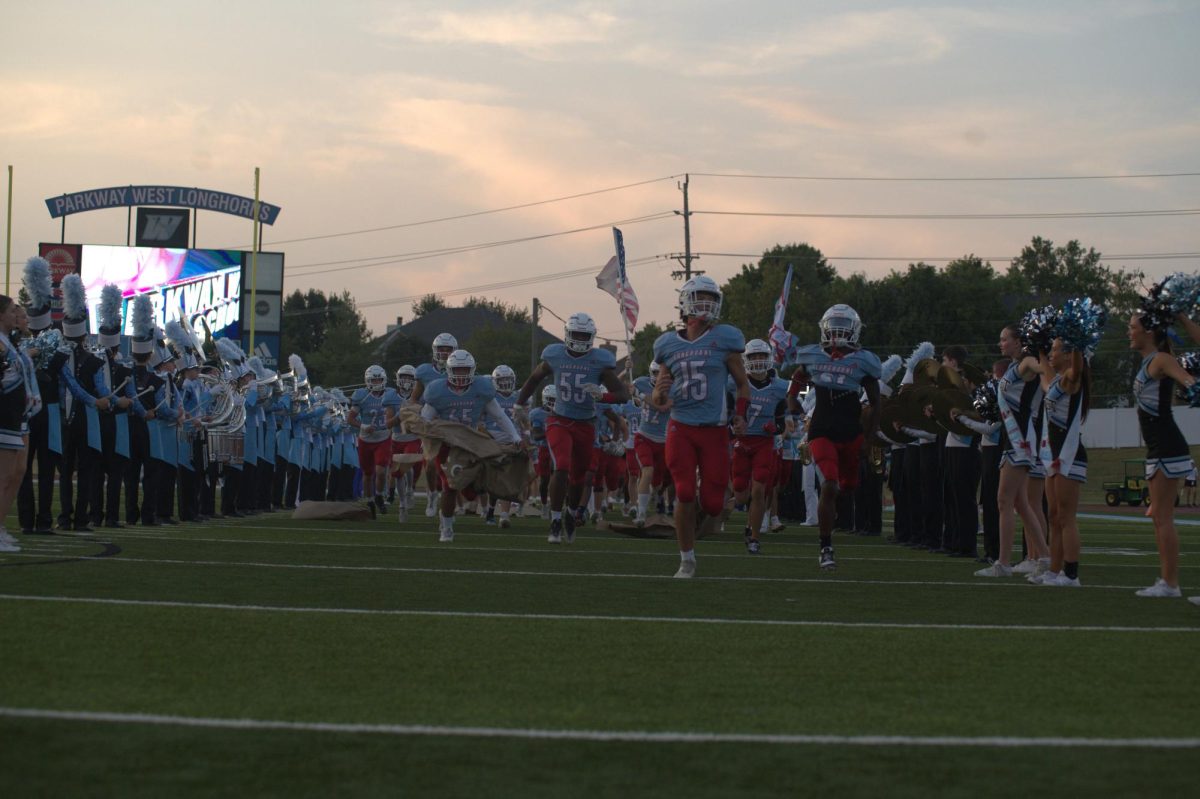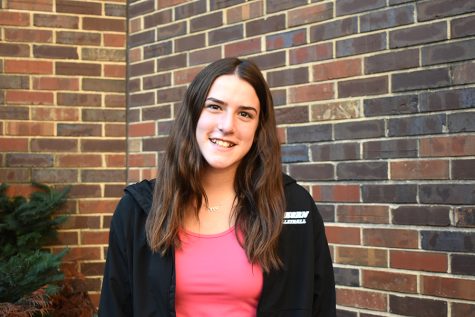After browsing the internet looking at a forum for computer science, freshman Sasha Tripathi stumbled upon a Congressional App Challenge. Looking for something to do during COVID-19, Tripathi decided to build an app.
Tripathi spent the next six months learning Python and watching YouTube tutorials to learn code. Then, over nine months, he created an app called Skin Doctor. First, skin Doctor detects Melanoma, a type of skin cancer that affects melanocytes or pigment cells. Then, taking a picture of someone’s skin feeds the image into a neutral network that tells how likely that person has skin cancer.┬Ā
“[My hope] is that my app will detect [the] cancer in the earliest stages and make sure people seek medical help if they suspect something, so they [won’t] have to [pay] for the entire cost. At lower-cost health care is more accessible, so the fact that my app works well is important so that the patients can check up on what could be super serious.” Tripathi said.┬Ā
Tripathi’s app inspiration came from his previous science fair experiment with classifiers. This machine-learning algorithm assigns a class label to information provided to a computer or software program. He decided to extend the challenge into creating the Skin Doctor app. Tripathi spent his summer reading multiple books for more instruction on how to build his app, in addition to spending six months learning code.┬Ā
“I brainstormed things that I thought were challenging enough, [so they] wouldn’t [think] ‘he did something that took two minutes to do.’ I wanted to let the judges know that I have worked on this for some time,” Tripathi said.
Tripathi used a program called Dart to create a skeleton of his app. Next, he researched various template apps and replicated their code to fit his vision for Skin Doctor, then fiddled around until it worked.┬Ā
“I was fairly confident that I could get through the whole project, [but] when I hit a roadblock, it was frustrating. However, I kept my goal in mind of finishing the app, and it helped me get through, “Tripathi said.┬Ā
During his process, Tripathi had some trouble building his camera. He had to scrap his framework and rebuild it from scratch completely. His neutral network was also not achieving the efficiency he hoped for, and it did not recognize variable melanomas.┬Ā
“Before you start [working] and every time you hit a roadblock, talk to someone because often verbalizing your ideas can get your brain working. [Also] research helps speed up your process. Even if you get bored while you are researching, you will be done with the app in way less time,” Tripathi said.
Not only did research help with his rebuilding process, but Tripathi’s dad, who is a Computer Scientist, helped get him moving again.┬Ā
“Whenever I would get stuck, I could ask him, and he would have some insight. His code affects millions of people, [which] is similar to what I want to do, [so] my dad was one of the largest help I had,” Tripathi said.┬Ā
For years Tripathi has wanted to go into the computer science field and take after his dad, specifically game development. After fixing a few bugs on the Skin Doctor app, Tripathi hopes to publish it to the app store for consumer use.┬Ā
“It’s a very open field because you can do whatever you want. You can control your world if you’re making a game, so you’re not constrained by the rules, [only] by your limits. Making games is an escape [for me] when having a stressful moment, and the ability to create something I would use means [more] to me.” Tripathi said.
Tripathi submitted his app on Nov. 1. 38 days later, he received an email from Congresswoman Ann Wagner, Chair of the House Suburban Caucus, stating that he had won the challenge.
“With the good feeling that comes with recognition, it compels me to do more artificial intelligence projects and to go to college to study Computer Science. It makes me proud since I put all my hard work into [my app]. It’s a little touching,” Tripathi said.


![Working on code with his dad, freshman Sasha Tripathi continues to fix some bugs on his project after winning the Congressional App Challenge for creating an app that detects skin cancer. ŌĆ£It makes me proud because I put my own hard work into it, and it just feels really good to have [it all] pay off,ŌĆØ Tripathi said.](https://pwestpathfinder.com/wp-content/uploads/2022/01/20220123_153841-e1643121339648-900x563.jpg)

![Freshman Daphne Stokes looks at a table with Veterans Day flyers and information on Nov. 11. Stokes, along with other West High students, like senior Alexander Lewinski, passed by the table in the cafeteria with army recruitment information and giveaways for students to observe during lunch. ŌĆ£Talking with [the recruiters] has definitely helped me [find] where I wanted to go, more than anything else,ŌĆØ Lewinski said.](https://pwestpathfinder.com/wp-content/uploads/2025/11/DSC_1227-2-1200x800.jpg)
![Helping a customer, print room assistant Gretchen Williams operates her booth at the West High Craft Fair from Oct. 25-26. This was WilliamsŌĆÖ first time participating in the Craft Fair with her new craft shop, Gs Beaded Boutique. ŌĆ£People have always said, over the years, ŌĆśyou should open something.ŌĆÖ [I replied that] I would rather just make [my crafts as] gifts for people. I just started [the online store] up, and it's been okay. I'm always surprised [by] how many views I get and [the] people from different states buying things; somebody from Alaska bought something the other day.ŌĆØ](https://pwestpathfinder.com/wp-content/uploads/2025/11/DSC0451-2-1200x799.jpg)
![Gesturing toward the clubŌĆÖs name on the board, Global Youth Aid co-president year Daniah Alsagheer discusses upcoming service projects with members during a meeting on Oct. 30. ŌĆ£We might be one club at one school, but together, weŌĆÖre [part of] something much bigger,ŌĆØ Alsagheer said.](https://pwestpathfinder.com/wp-content/uploads/2025/11/DSC00949-1200x800.jpg)
![Focused on providing exceptional service, sophomore Darsh Mahapatra carefully cleans the door of a customerŌĆÖs car. Mahapatra has always believed his customers deserve nothing less than the best. ŌĆ£[If] theyŌĆÖre trusting us with their car and our service, then I am convinced that they deserve our 100 percent effort and beyond,ŌĆØ Mahapatra said.](https://pwestpathfinder.com/wp-content/uploads/2025/10/DSC_0018-1200x800.jpg)
![Sophomore Aleix Pi de Cabanyes Navarro (left) finishes up a soccer game while junior Ava Muench (right) warms up for cross country practice. The two came to Parkway West High School as exchange students for the 2025-2026 school year. ŌĆ£The goal for the [exchange] program is to provide opportunities for both Parkway students and our international exchange students to learn about other cultures, build connections and become confident, capable, curious and caring ŌĆö ParkwayŌĆÖs Four CŌĆÖs ŌĆö in the process,ŌĆØ Exchange Program Lead Lauren Farrelly said.](https://pwestpathfinder.com/wp-content/uploads/2025/10/Feature-Photo-1200x800.png)

![Gazing across the stage, sophomore Alexis Monteleone performs in the school theater. The Monteleone familyŌĆÖs band ŌĆ£Monte and the MachineŌĆØ has been releasing music since 2012, but Alexis started her own solo career in 2024 with the release of her first single, Crying Skies. ŌĆ£My whole family is very musical, [and I especially] love writing [songs with them],ŌĆØ Monteleone said.](https://pwestpathfinder.com/wp-content/uploads/2025/09/DSC7463-1200x798.jpg)
![Amid teaching a lesson to her AP Calculus BC class, Kristin Judd jokes alongside her students in their funny remarks. Judd has always enjoyed keeping the mood light in her classroom, along with on the volleyball court. ŌĆ£[I enjoy] that side talk where you see [or] overhear a conversation and chime in, or somebody says something funny,ŌĆØ Judd said.](https://pwestpathfinder.com/wp-content/uploads/2025/09/image-1200x730.jpg)
![Eyeing the ball, junior Ella McNeal poses for her commitment pictures at Clemson University. McNealŌĆÖs commitment comes after months of contact with top Division 1 soccer programs. ŌĆ£ It has taken a lot to get to where I am, but I know that [what] I've already been through is just the beginning, and I can't wait for what is to come,ŌĆØ McNeal said.](https://pwestpathfinder.com/wp-content/uploads/2025/09/IMG_4926-1200x900.jpeg)

![Sophomore Shree Sikkal Kumar serves the ball across the court in a match against Lindbergh. Sikkal Kumar has been a varsity member of the varsity girlsŌĆÖ tennis team for two years, helping her earn the number two rank in Class 2 District 2.ŌĆ£When matches are close, itŌĆÖs easy to get nervous, but I [ground] myself by[staying] confident and ready to play,ŌĆØ Sikkal Kumar said.](https://pwestpathfinder.com/wp-content/uploads/2025/11/DSC2801-1200x798.jpg)
![Dressed up as the varsity girlsŌĆÖ tennis coach Katelyn Arenos, senior Kate Johnson and junior Mireya David hand out candy at West HighŌĆÖs annual trunk or treat event. This year, the trunk or treat was moved inside as a result of adverse weather. ŌĆ£As a senior, I care less about Halloween now. Teachers will bring their kids and families [to WestŌĆÖs Trunk or Treat], but there were fewer [this year] because they just thought it was canceled [due to the] rain. [With] Halloween, I think you care less the older you get,ŌĆØ Johnson said.](https://pwestpathfinder.com/wp-content/uploads/2025/10/DSC00892-1-1200x800.jpg)
![Leaning on the podium, superintendent Melissa Schneider speaks to Parkway journalism students during a press conference. Schneider joined Parkway in July after working in the Thompson School District in Colorado. ŌĆ£My plan [to bond with students] is to get things on my calendar as much as possible. For example, being in [classes] is very special to me. I am trying to be opportunistic [meeting] kids [and] being in [the school] buildings. I have all the sports schedules and the fine arts schedules on my calendar, so that when I'm available, I can get to them,ŌĆØ Schneider said.](https://pwestpathfinder.com/wp-content/uploads/2025/09/IMG_5425-1200x943.jpeg)

![Leaping through the air, senior Tyler Watts celebrates his first goal of the season, which put the Longhorns up 1-0 against the Lafayette Lancers. Watts decided to play soccer for West for his last year of high school and secured a spot on the varsity roster. ŌĆ£[Playing soccer for West] is something I had always dreamed of, but hadnŌĆÖt really had a good opportunity to do until now. ItŌĆÖs [really] fun being out [on the field], and IŌĆÖm glad I decided to join the team. ItŌĆÖs just all about having fun with the boys and enjoying what time we have left together,ŌĆØ Watts said.](https://pwestpathfinder.com/wp-content/uploads/2025/09/DSC_1951-1200x855.jpg)

![Shifting global trade, President Donald TrumpŌĆÖs tariffs are raising concerns about economic stability for the U.S. and other countries alike. ŌĆ£[The tariffs are] going to pose a distinct challenge to the U.S. economy and a challenge to the global economy on the whole because it's going to greatly upset who trades with who and where resources and products are going to come from,ŌĆØ social studies teacher Melvin Trotier said.](https://pwestpathfinder.com/wp-content/uploads/2025/05/MDB_3456-1200x800.jpg)

![Pitching the ball on Apr. 14, senior Henry Wild and his team play against Belleville East. Wild was named scholar athlete of the year by St. Louis Post-Dispatch after maintaining a high cumulative GPA and staying involved with athletics for all of high school. ŌĆ£ItŌĆÖs an amazing honor. I feel very blessed to have the opportunity to represent my school [and] what [it] stands for,ŌĆØ Wild said.](https://pwestpathfinder.com/wp-content/uploads/2025/05/unnamed-6-1200x714.jpg)
